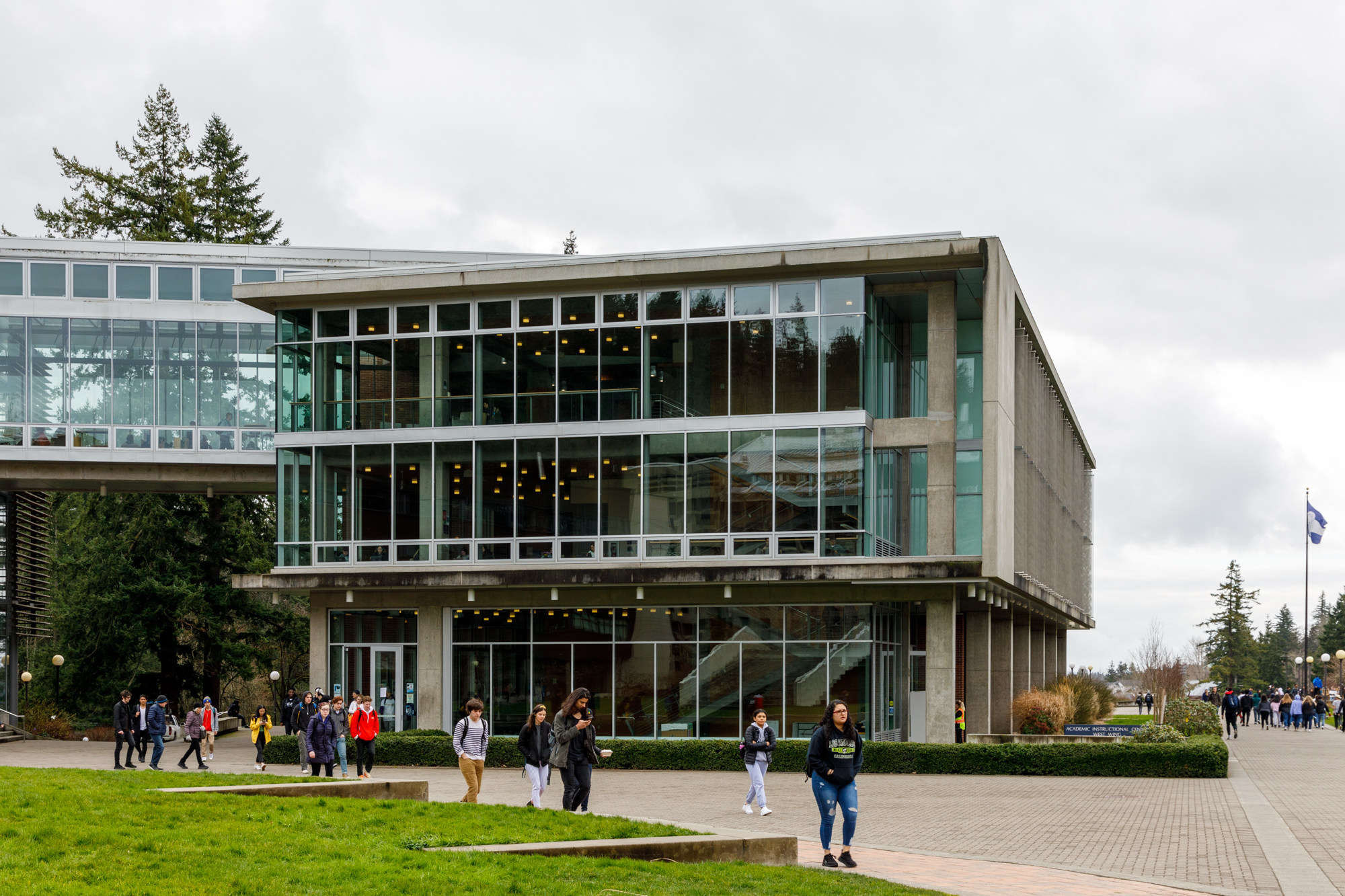Academic Instructional Center West Wing, commonly called Academic West, hosts the Graduate Therapy program. Joe Addison // AS Review
By MacKenzie Dexter
With mental health counseling employment on the rise, Western graduate students spend part of their education preparing for a future of helping community members.
Through the Counseling Training Clinic (CTC), graduate students from the Clinical Mental Health and School Counseling programs train by conducting free counseling that is open to community members, Dr. Jim Graham, professor and department chair of the department of psychology, said. The clinic runs from the end of January to early June each year.
The clinic sees people of all ages and backgrounds and serves a variety of topics that clients seek to address.
“While we see people experiencing a wide range of difficulties, depression and anxiety are typically the most frequent presenting concerns,” Graham said in an email.
Program faculty supervise the 12 practicum students, in the first year of the program, when they counsel patients. Students in practicum see two clients each.
“Having a clinic in the department allows us to use a live supervision model, where sessions are directly observed by a supervisor,” Graham said in an email. “During their second year, students provide counseling services through external internships in schools, community mental health agencies, and the like.”
Dr. Diana Gruman, associate professor and director of the school counseling program, said that the program follows the Council for Accreditation of Counseling and Related Educational Programs (CACREP) guidelines to ensure faculty supervision for beginning students practicing counseling. According to Gruman, the sessions allow students and faculty to practice and learn from their recorded sessions so they can continue to improve their skills.
“We [and our students and alumni] value the direct and intensive learning experience that an on-site clinic and live supervision provides,” Gruman said in an email.
Geneva Hughes, a graduate student in the school counseling program, said that having the experience to work in a supervised setting and getting the opportunity to work with clients is a great way to practice the skills she is learning.
“We just get a lot of feedback about our work, which is really helpful for changing and improving and getting ready for next year and beyond,” Hughes said.
Each session is recorded so students and faculty can study the sessions, which can be intimidating. However, it has given Hughes the opportunity to notice her unconscious behaviors.
“So it’s just been a really great opportunity to be able to reflect on my own work and the places that I’m able to grow,” Hughes said.
Hughes said that an important aspect of counseling is making sure people feel comfortable in the environment they’re in. Finding ways to relate to clients also helps to make them feel comfortable.
“There’s a lot of stigma around mental health,” Hughes said. “That’s a big conversation for everybody everywhere and any kind of mental health service delivery program.”
Hughes said that counselors are there to help and connect, relate and validate their clients.
“And if we’re not doing that and we’re not able to make someone feel comfortable, we’re not doing something in an ethical way because it’s just so important that people feel seen and validated and heard when they come into the counseling room,” Hughes said.
Hughes also said that she hopes for counseling to be more inclusive with language diversity.
“There’s really a lack of training for people who speak multiple languages to get trained in the language that they speak besides English,” Hughes said. “So even though people are multilingual, the training is still English focused and the idea is that you just switch that over to another language, but that doesn’t really, it doesn’t really work that way.”
With this service available to community members and used as training for graduate students, the waitlist fills up quickly since the demand for mental health counselors continues, Gruman said.
With the past Western Today newsletters sent out to students, confusion surfaced over who can use this free resource.
According to Gruman, the individual counseling sessions are not offered to students due to several factors. One reason is that out of the 24 people seen each quarter, they aim to include around half of the clients under the age of 18 since some students plan on counseling in schools. Another reason is due to the shortage of mental health counselors in the area that do not require insurance, the CTC is a free option. An ethical implication if the CTC were to bring in students would be the potential conflict between the client and counselor.
“About a third of our graduate students serve as Teaching Assistants for undergraduate Psychology classes,” Gruman said in an email. “Additionally, some of our grad students are former WWU students or have WWU undergrad housemates.”
The same potential issue arises for professors who oversee the session since most professors teach one or more undergraduate courses, Gruman said.
However, the department introduced group counseling sessions for Western students two years ago and are available each spring.
“They focus more group dynamics and psychoeducational topics of stress management,” Gruman said in an email. “These groups are open to all WWU students and they are advertised widely for Psychology students.”
Gruman said the department is pleased with how the CTC program is working and does not plan on changing the policy due to the conflicts listed prior. However, she encourages people to reach out to the Counseling Center, WWU Health Center and RES Life to learn about how they support mental health.

